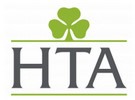Data released today (24 August) by the Horticultural Trades Association (HTA) shows clear consequences that accelerating a ban from 2030 to 2026 on UK tree and plant growers using peat will have significant environmental and economic impacts. The reduced timescale will more than halve the number of growing seasons to complete extensive trialing to changes in crop production techniques, leading to counterproductive outcomes contrary to the Government's Environmental Improvement Plan.
HTA members' insights already show that a fast-tracked peat ban could lead to a shortage of 100 million plants and trees immediately following the ban's enforcement. This scarcity will have knock-on effects on green spaces, gardens, and streets across the UK, impacting the country's natural landscapes. Furthermore, one in three suppliers to amenity customers, including public green spaces, expect disruptions or withdrawals from supply agreements and contracts. Garden centers also anticipate gaps in product availability by 2027.
Now, an economic study commissioned by the HTA from independent economists at Oxford Economics indicates that expediting the ban to 2026 would lead to a staggering £541 million reduction in Gross Value Added (GVA) and a £124 million decline in tax revenues. Moreover, it could potentially result in the loss of 12,000 jobs.
This news comes as we approach the one-year mark since the Government published the response to the consultation on peat sales for horticultural use.
James Barnes, Chairman of the HTA, representing garden centers, nurseries, landscapers, and manufacturers, explains the key findings:
"The HTA is advocating for a rational and balanced course rather than a delay. This fresh economic analysis, coupled with our impact assessment, reinstates what we have already been saying: a rushed timetable for a ban on the UK's professional tree and plant growers will result in a worse economic and environmental outcome than maintaining the original proposed date of 2030.
"It is clear that the environmental loss far outweighs the carbon savings benefit of advancing the peat removal timeline to 2026. The study underscores the need for a balanced and measured approach to ensure optimal environmental outcomes without penalizing an industry already committed to transitioning from peat.
"While peat use in bagged compost for individual gardens has significantly decreased to 16.8% and is on course to be completely phased out by the end of 2024, the transition for professional nurseries producing a wide array of trees and plants is more intricate. An exemption for all UK tree and plant growers from the peat ban until 2030 would allow sufficient time for necessary trials, seamless transitions to peat-free alternatives, and proper consideration of imports without compromising plant and tree health. Our members are already well on the journey, successfully reducing the professional use of peat to below 50% of the volume of previous levels and on a clear, steep downward trajectory.
"The complexities of finding suitable peat-free alternatives for different plants and crops, with varying irrigation methods and nutrient strategies required, is not to be underestimated. Quality and consistency also remain barriers, further exacerbated by incentives for energy companies for biomass energy generation, which puts pressure on supplies of wood-based materials available for growing media."
For more information: Horticultural Trades Association
Horticultural Trades Association
www.the-hta.org.uk
